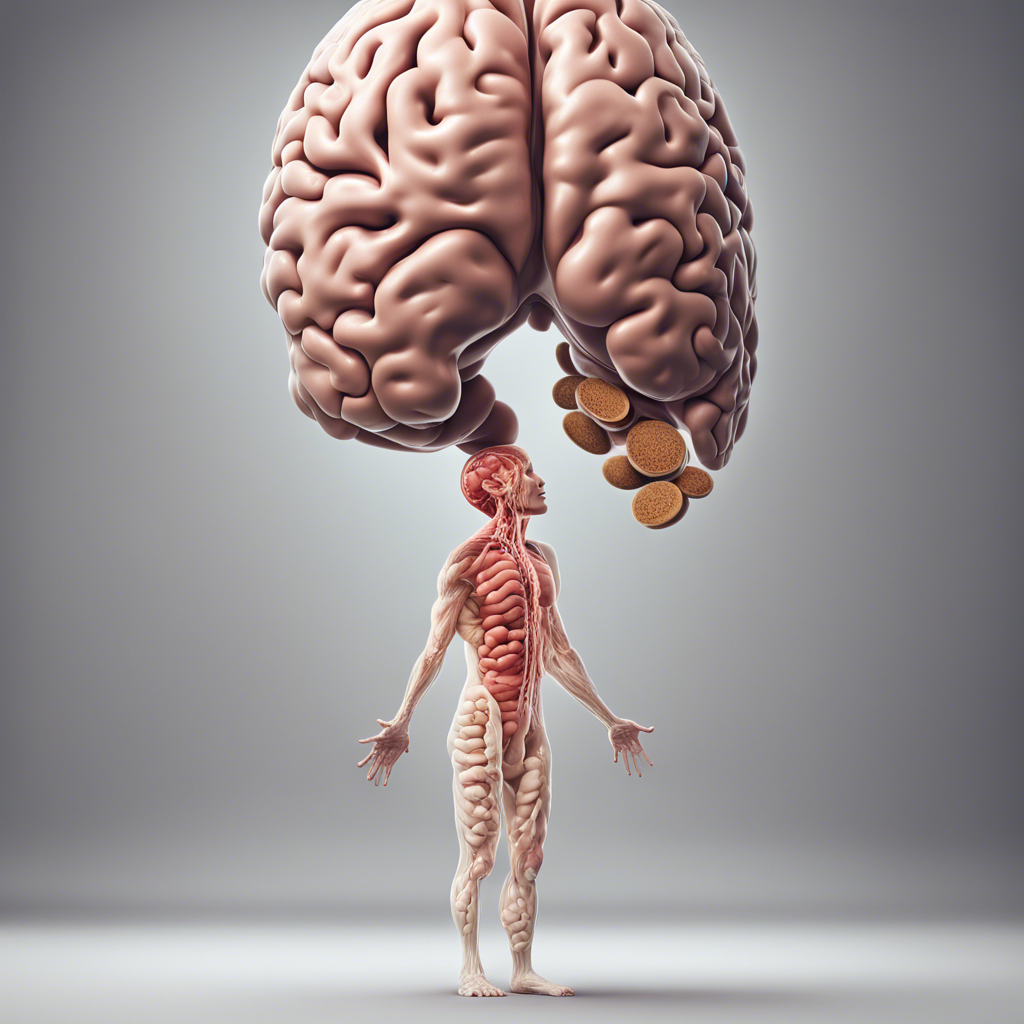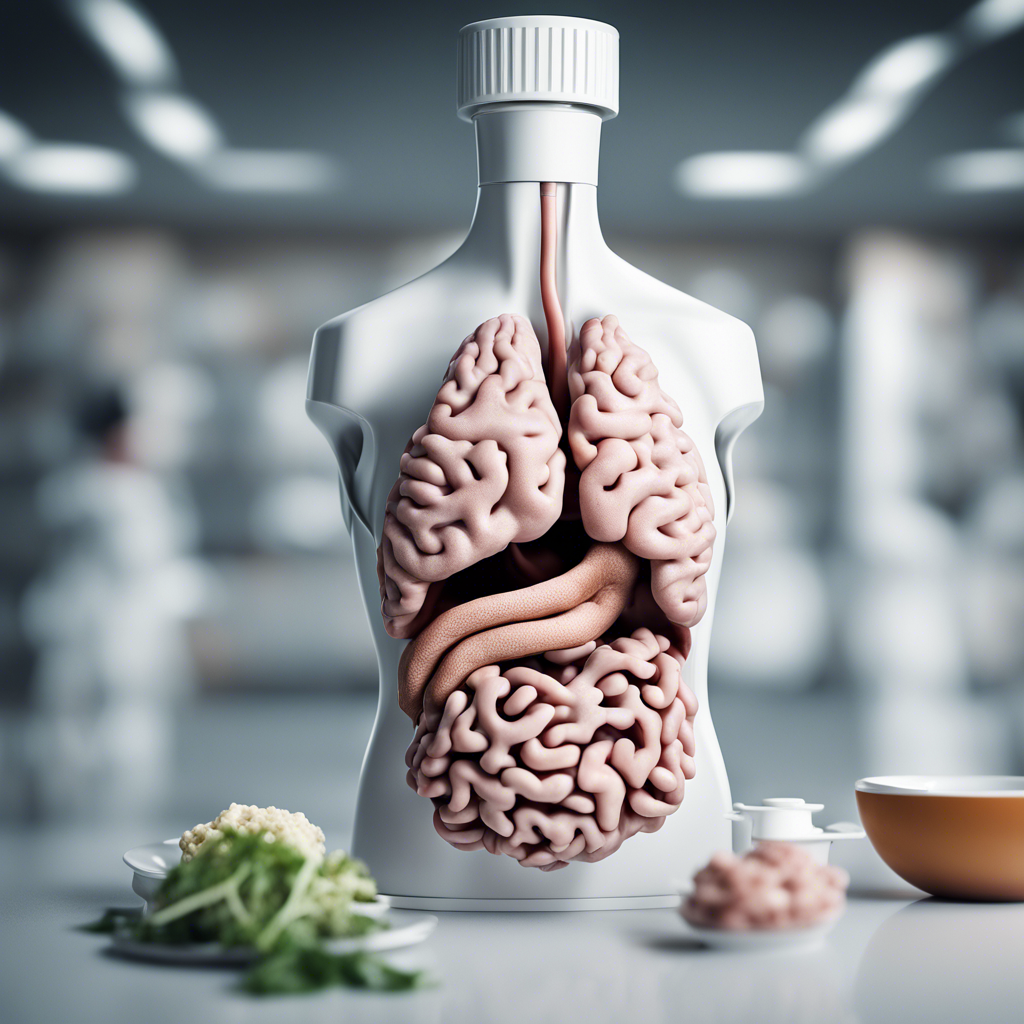The Gut-Brain Connection: How Probiotics Can Reduce Stress and Belly Fat
The intricate relationship between our gut and brain affects more than just our digestive health. Recent studies have found that this connection plays a crucial role in our mental wellness as well. The gut-brain connection impacts mood, stress levels, and even our ability to maintain a healthy weight.

Probiotics, known for their role in promoting gut health, are emerging as a cornerstone in managing this connection to achieve both mental and physical well-being. Their potential extends beyond digestive health, offering promising benefits for stress reduction and weight management, particularly in reducing belly fat. Understanding how probiotics interact with our gut and brain can unlock new avenues for achieving holistic health.
In this article, we delve into the science behind the gut-brain connection, explore how probiotics can alleviate stress, and examine their role in promoting weight loss and reducing belly fat. With insights into gut health and mental wellness, we offer practical applications for integrating probiotics into your daily routine.
The Science Behind the Gut-Brain Connection
The Role of the Gut Microbiome
The gut microbiome consists of trillions of microorganisms that reside in our digestive tract, playing a critical role in our overall health. These microorganisms are not just passive residents; they actively interact with our bodily systems, including the brain. The gut-brain axis describes this complex communication network between the central nervous system and the gut microbiome.
This communication occurs through multiple pathways, including the vagus nerve, the immune system, and the production of neurotransmitters such as serotonin. Approximately 90% of serotonin, a key neurotransmitter in regulating mood, is produced in the gut. This illustrates the gut’s profound influence on our mental state, making the health of our gut microbiome essential for maintaining mental wellness.
Stress and Gut Health
Chronic stress impacts gut health negatively, disrupting the composition of the gut microbiome and causing issues such as inflammation. This, in turn, affects the production and balance of neurotransmitters crucial for brain function and mood regulation. Stabilizing the gut microbiome with probiotics can mitigate stress-induced imbalances.
Research highlights that individuals who maintain a healthy gut microbiome exhibit reduced cortisol levels, the primary hormone released during stress. Forest bathing weight loss success stories emphasize the role of natural environments combined with improved gut health in achieving reduced stress and better weight management outcomes.
The Impact of Neurotransmitters
As mentioned, neurotransmitters produced in the gut significantly affect brain function. GABA (gamma-aminobutyric acid), another important neurotransmitter, is implicated in stress and anxiety reduction. Probiotics such as Lactobacillus and Bifidobacterium species are known to influence GABA production positively, leading to improved stress management capabilities.
Implementing dietary adjustments that bolster these beneficial bacteria can thereby enhance both gut health and mental wellness, offering a natural method for stress mitigation.
Probiotics for Stress Reduction and Weight Loss
Probiotics and Stress Reduction
Probiotics are live bacteria that promote a healthy balance of gut flora. When the gut microbiome is well-balanced, it can lower stress levels and enhance mood. Certain probiotic strains have been shown to impact anxiety reduction, likely through the modulation of the gut-brain axis.
Consuming probiotics regularly can help maintain this balance, reducing the physiological impacts of stress hormones on the body. Yogurt, kefir, and fermented foods like kimchi and sauerkraut are excellent sources of probiotics that can be easily integrated into daily diets to support stress reduction.
Probiotics for Belly Fat Reduction
Beyond stress-relief, probiotics are also instrumental in managing weight, particularly in reducing belly fat. Studies indicate that probiotics can influence the absorption of dietary fats, increasing the amount of calories excreted by the body.
Specific strains, like Lactobacillus gasseri, have been associated with reductions in abdominal fat. In combination with healthy dietary practices, probiotics provide a natural strategy for those looking to lose weight safely and effectively. Incorporating probiotics in a comprehensive weight loss plan has shown to lead to measurable reductions in body fat percentages.
Practical Applications for Weight Loss
Integrating probiotics into a weight management strategy does not require drastic dietary changes. It’s about including probiotic-rich foods and supplements into your daily routine. This approach has been highlighted in various forest bathing weight loss success stories, where a holistic view of health and lifestyle adjustments, including enhanced gut flora, have led to lasting weight management.
For those new to probiotics, starting with a multi-strain supplement can be beneficial, ensuring a broad spectrum of beneficial bacteria aiding both mental wellness and physical health.
Integrating Probiotics into Your Lifestyle
Choosing the Right Probiotics
With the wide array of probiotic supplements available, selecting the right one can be daunting. Key factors to consider include the presence of multiple beneficial strains and a high CFU (colony-forming unit) count. It is also essential to choose a product that guarantees live, active bacteria at the time of consumption.
Consulting with healthcare professionals can provide personalized advice, aligning probiotic choices with individual health goals, particularly in managing stress and reducing belly fat.
Incorporating Probiotics in Daily Diet
Beyond supplements, naturally incorporating probiotics through diet can be both enjoyable and beneficial. Fermented foods like yogurt, kefir, soybean-based tempeh, and fermented vegetables contain live bacteria that support gut health.
For an increased intake of probiotics, try adding a spoonful of sauerkraut to your salads or enjoying a glass of kefir with breakfast. These minor adjustments to your diet can yield significant improvements in both gut health and mental wellness.
Long-term Benefits of Probiotics
The advantages of probiotics extend beyond immediate health benefits. Regular consumption fosters a resilient gut microbiome that boosts immunity, enhances nutrient absorption, and balances bodily functions. This supports not only stress reduction and weight management but also overall well-being.
Probiotics form a crucial aspect of a lifestyle geared towards holistic health, making them indispensable allies in achieving balanced physical and mental wellness.

Frequently Asked Questions
How do probiotics help reduce stress?
Probiotics aid in balancing the gut microbiome, which influences the production of stress-related hormones and neurotransmitters. Specific strains help modulate the gut-brain axis and serotonin levels, reducing stress and enhancing mood. Incorporating these probiotics can result in a more stable emotional response to daily stressors.
Can probiotics really help with belly fat reduction?
Yes, certain probiotic strains like Lactobacillus gasseri have shown promise in reducing abdominal fat. They work by altering fat absorption and helping regulate body weight. Consistent intake of these probiotics, coupled with healthy lifestyle choices, supports weight management and reduction of belly fat.
Are there any specific foods that contain probiotics beneficial for stress and weight management?
Fermented foods are excellent sources of probiotics. Yogurt, kefir, kimchi, sauerkraut, and tempeh are all rich in beneficial bacteria. Including these foods in your diet can promote gut health and contribute to both stress reduction and weight management.
What should I consider when choosing a probiotic supplement?
When selecting a probiotic supplement, look for products with multiple strains and high CFU counts. It’s crucial that the supplement ensures live culture viability until consumption. Consulting with healthcare professionals can provide guidance tailored to your specific health goals, whether it’s stress reduction or weight loss.
How quickly can I expect results from taking probiotics?
The timeline for experiencing benefits from probiotics varies among individuals. Some may notice improvements in digestive health and mood within a few weeks, while others might require more time. Consistency is key, and integrating probiotics into a comprehensive health regimen is recommended for optimal results.
Conclusion
The gut-brain connection underscores the potent impact of our gut health on our mental and physical well-being. Probiotics offer a valuable tool in managing this connection, promoting stress reduction, and aiding in weight management. Their role in nurturing a balanced microbiome is indispensable for those seeking improved mental wellness and physical health.
By choosing the right probiotics and incorporating them into daily routines, individuals can experience reduced stress levels and success in weight loss efforts, particularly the reduction of belly fat. Coupled with a healthy diet and lifestyle changes, probiotics pave the way for holistic health improvements.
Embracing probiotics involves understanding their multifaceted benefits and realizing their potential in creating harmony between the gut and brain. This integrative approach is key to achieving sustained improvements in both mental and physical health.
Suggested Video Topics
- The Role of Probiotics in the Gut-Brain Connection
- Probiotics for Weight Loss: A Beginner’s Guide
- Understanding the Science of Stress and Gut Health



